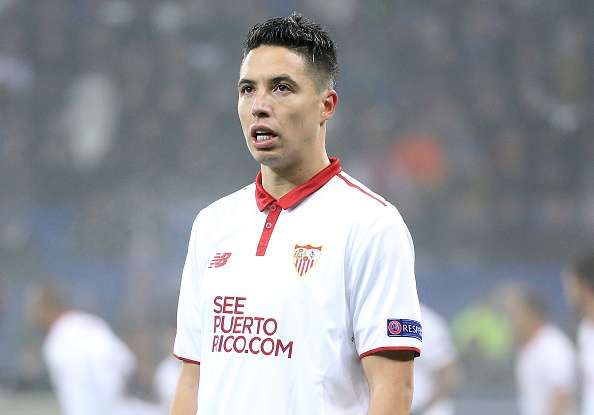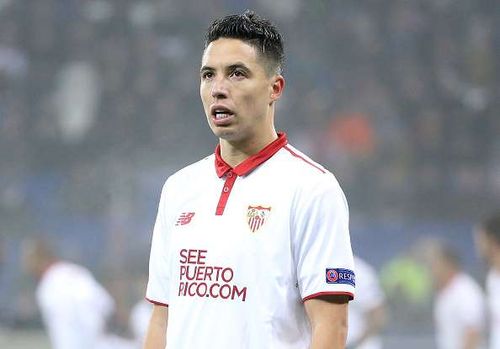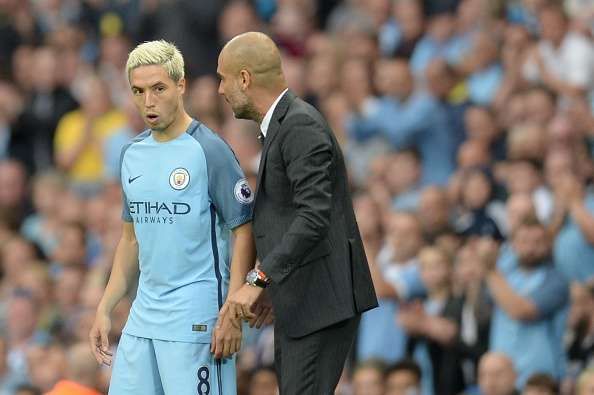
Samir Nasri faces possible four-year ban for intravenous therapy at Drip Doctors clinic

What’s the story?
Sevilla midfielder Samir Nasri could be banned from football for as many as four years if he is found guilty of doping through intravenous therapy. The Frenchman had recently visited a clinic in Los Angeles during the winter break in La Liga and the World Anti-Doping Agency (WADA) has now ordered a thorough investigation.
Nasri is currently on loan from Manchester City and had tweeted towards the end of December about a trip to a clinic called ‘Drip Doctors’ that specialised in intravenous therapy. It is this particular treatment that has caught the eye of WADA as this type of therapy is banned unless there are exceptional circumstances.
A WADA spokesperson said: “A violation of Article 2.2 of the code could result in a sanction of up to four years. However, this will depend upon factors such as whether or not the use was intentional and if unintentional. The sanction could be subject to further reductions on the basis of no significant fault or negligence.”
In case you didn’t know...
WADA does not allow intravenous therapy unless the doses are limited to 50ml every six hours. Athletes are not allowed to administer doses unless they have a medical certificate.
Drip Doctors is a clinic in Los Angeles that specialises in IV Vitamin Therapy and other treatment such as Vitamin Booster shots and Hormone Replacement. According to their website, their immunity drip is “an infusion tailor-made to boost your immune system”. The treatment sees athletes receive one litre through an intravenous drip and they explain that it consists of Vitamin B & C.
They had confirmed on Twitter on 27 December that Nasri had been provided “a concierge Immunity IV Drip to keep him hydrated & in top health”. An image of the footballer was also attached in the tweet.
The heart of the matter
For athletes to undergo intravenous therapy, they should have a Therapeutic Use Exemption (TUE). His current employers Sevilla have given no indication of whether Nasri actually needed the therapy. The club, on their part, did admit that they did not know about Nasri’s plans to go the clinic in Los Angeles.
Technically, WADA has not stepped in yet and have asked the Spanish anti-doping agency (AEPSAD) to conclude their investigations as soon as possible. The main issue is the intravenous drip rather than what the booster contained. Even if it was only vitamins, intravenous therapy can be used as a form of doping.
Also read: Samir Nasri chose Sevilla because of "great food and beautiful girls"
What’s next?
As things stand, Nasri is still free to play for Sevilla. Until the investigation is concluded, Nasri remains available for selection. He has not been suspended by La Liga, the club or the Spanish anti-doping agency.
However, a guilty verdict will seriously harm Nasri’s career. He turns 30 this year and a four-year ban will effectively end his career as a top-flight footballer. A ban would also see Manchester City lose a player for nothing as they look to offload him after he failed to find a spot in Pep Guardiola’s squad.

WADA did say that they will keep a close eye on proceedings. “As with all anti-doping matters, we will be monitoring the work conducted by the applicable anti-doping organization,” the WADA spokesperson said. “Anti-doping organizations are required to come to a decision efficiently and without undue delay as to whether the proceedings should be brought against the athlete or other person.”
Sportskeeda’s Take
Doping in any form is unacceptable and, while there are specific rules outlined to ensure players do not dope, there are a number of loopholes and grey areas. WADA faces a number of challenges in keeping players in check, especially considering the number of footballers across the world compared to other sports such as cycling where doping is rampant.
Checkups for random players after certain games may no longer be enough and regular checks must be done on all players. That being said, Nasri may have gone against regulations but there is no conclusive proof yet that the treatment he received amounts to doping. However, it has set a precedent that cannot be ignored.